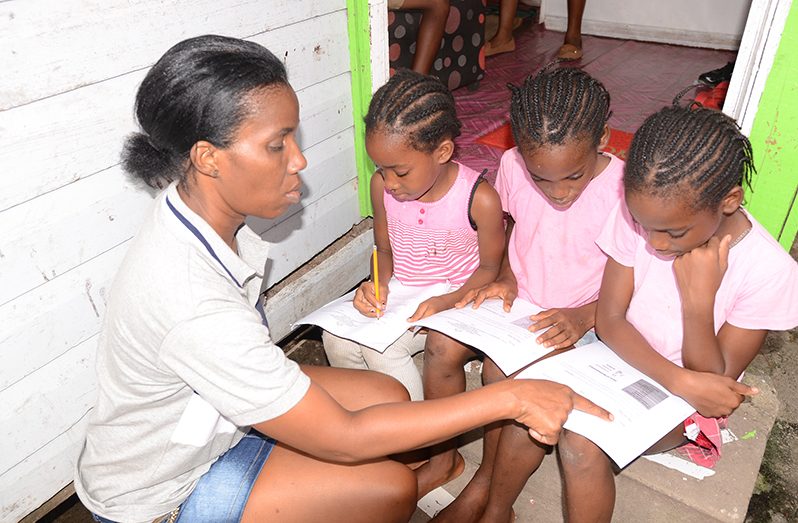By Mesha Sealey
WITH the advent of the COVID-19 pandemic, there is no doubt that, for many, challenges which might have existed before, have been significantly heightened and multiplied.
From the loss of employment, fear of contracting the disease and increased financial strain, to rapidly debilitating mental states, we can all agree that the coronavirus made some of our worst fears a reality. While for some, school might have been the place to see friends and socialise, it was, for others, an escape from their home lives, where they could have access to food, books and other resources that may not have been available at home.
This was the case for many learners residing at Stevedore Housing Scheme in Georgetown. While online learning was proposed as a method of ensuring that learners are kept actively occupied, there lay, for many, a fatal flaw within this approach.
Though many may agree that the online system is the most propitious system for keeping children abreast with their academic education, as it reduces risk of contracting the deadly virus, a large number of learners are still bereft of electronic devices, or even an internet connection needed to access online learning materials.
Previously, the Ministry of Education had implemented a “blended multifaceted approach” to incorporate teaching via various internet platforms, the Learning Channel, radio and print materials, but some parents say that such is not enough.
“Not everybody has the means that they want for these children. Of course you have the television and the worksheets, but when you have a set of children of different ages, it’s not enough,” one single mother of Stevedore Housing Scheme explained during an interview with this newspaper.
The woman, who is mother to eight, elaborated that the children had difficulty accessing appropriate learning materials due to the fact that all the members of her household share one smartphone, which is already overloaded with work for her son, who attends secondary school.
“While he is on the phone doing his schoolwork, nobody else can really use it, you know. So we are at a disadvantage,” the woman conceded.
“The thing is, the teachers are saying they want these children to do their work, but the teachers, or the people that are setting the curriculum, they don’t realise the circumstances the children living in.
“They are not going about asking to see if they could give a helping hand to those in need, and see who you could help to get the work done,” another mother lamented.
“We finding it really difficult to deal with this situation, because children can’t get their work done, and we don’t have nothing better for them to do,” she concluded.
As it is, more than 50 children within Stevedore Housing Scheme do not have access to electronic devices, Wi-Fi or data services which they need to complete their online learning.
“More could definitely be done when it comes to helping out the children in the area…because if you look around, you can see a lot of people need help,” said one High School student.
All schools in Guyana have been closed since March 2020, when Guyana recorded its first case of the virus. However, on November 9, 2020, secondary schools reopened for face-to-face learning for grades 10, 11 and 12 as those students are preparing to write the 2021 Caribbean Secondary Education Certificate and Caribbean Advanced Proficiency examinations.




.png)









